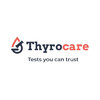
i
Dr Lal
PathLabs
Filter interviews by
Dr Lal PathLabs Interview Questions and Answers
22 Interview questions
I bring a unique blend of leadership, strategic vision, and industry expertise to drive regional growth and team success.
Proven track record of exceeding sales targets by 30% in my previous role as a Regional Sales Manager.
Strong leadership skills demonstrated by successfully managing a team of 15 sales representatives, fostering collaboration and motivation.
Expertise in market analysis and identifying growth oppo...
QA (Quality Assurance) is the process of ensuring that products meet specified standards and requirements, while QC (Quality Control) involves testing and inspecting products to identify defects.
QA focuses on preventing defects, while QC focuses on identifying defects after production
QA involves processes and procedures to ensure quality standards are met, while QC involves testing and inspection of products
Exampl...
Control is used to ensure accuracy and consistency of measurements, while a calibrator is a standard reference used to calibrate instruments.
Control is used to monitor the performance of a system or process over time.
Calibrator is a known standard used to adjust or set the accuracy of an instrument.
Controls are typically run alongside samples to ensure accurate results.
Calibrators are used to adjust instruments li...
Clean slate theory under IBC refers to the process of wiping out the past debts and starting afresh with a clean financial record.
Clean slate theory allows for the resolution of insolvency by providing a fresh start to the debtor.
It involves the restructuring of debts and assets to enable the debtor to make a fresh beginning.
Under the Insolvency and Bankruptcy Code (IBC), the clean slate theory aims to promote the...
What people are saying about Dr Lal PathLabs





Revenue reconciliation is the process of comparing and matching the revenue recorded in the financial statements with the actual revenue earned.
It involves verifying the accuracy and completeness of revenue transactions.
It ensures that all revenue is properly recorded and accounted for.
Revenue reconciliation may involve comparing sales records, invoices, receipts, and bank statements.
It helps identify any discrepa...
Chemical and physical examination of urinalysis involves analyzing the composition and properties of urine.
Chemical examination includes tests for pH, protein, glucose, ketones, bilirubin, urobilinogen, nitrites, leukocyte esterase, and specific gravity.
Physical examination involves assessing the color, clarity, odor, and volume of urine.
Chemical tests are performed using reagent strips or automated analyzers.
For ...
ESR full form is Erythrocyte Sedimentation Rate.
ESR is a test that measures how quickly red blood cells settle at the bottom of a test tube.
It is a non-specific test used to detect inflammation in the body.
High ESR levels can indicate conditions like infections, autoimmune diseases, and cancer.
PPE stands for Personal Protective Equipment, which includes items like masks, gloves, and goggles to protect against hazards.
PPE is equipment worn to minimize exposure to hazards that can cause serious workplace injuries or illnesses.
Examples of PPE include masks, gloves, goggles, helmets, safety shoes, and earplugs.
PPE should be used in accordance with workplace safety regulations and guidelines.
Proper training ...
Vendor engagement process involves identifying, evaluating, selecting, and managing vendors.
Identify the need for a vendor
Research and evaluate potential vendors
Select the best vendor based on criteria such as cost, quality, and reliability
Negotiate and finalize the contract
Manage the vendor relationship and monitor performance
Dr. Lal Path Lab is a leading diagnostic center in India.
Founded in 1949 by Dr. S.K. Lal
Offers a wide range of diagnostic tests including blood tests, imaging, and pathology
Has over 190 clinical labs and over 1700 collection centers across India
Provides online reports and home sample collection services
Accredited by NABL and CAP
Has partnerships with various hospitals and healthcare providers
Dr Lal PathLabs Interview Experiences
149 interviews found
(5 Questions)
- Q1. Where is antigen present
- Ans. On the surface of RBC
- Q2. What is the window period of HIV
- Ans. 6 month
- Q3. Frozen plasma mean
- Q4. Why calibration is necessary for biomedical equipment
- Q5. Why did find difficult to blood group of early born baby?
- Ans. Early born baby have immature RBC, that's why antigen antibody agglutination can not carried out completely, it's a difficulty found in determining baby blood group
Interview Preparation Tips
(2 Questions)
- Q1. Pathology lab technician
- Q2. Medical lab technician
(3 Questions)
- Q1. Dr lab path labs
- Q2. Order of draw Cbc parameters and normal range asked in Lab Technician interview
- Q3. What is the difference between Sysmex xn350 and Sysmex xn 550
I appeared for an interview in Mar 2025, where I was asked the following questions.
- Q1. Order of draw CBC parameters
- Q2. EDTA full form
- Q3. Westgard rule rejection and warning
- Q4. Why did find difficult to blood group of early New born baby
- Q5. Order of draw sodium citrate
- Q6. What are the QC level
- Q7. Calibration system
- Q8. What are seen RBCS and platelet
- Q9. What is window period of HIV
- Q10. What the interviewer really
- Q11. How use tube carbomwzipine test
- Q12. How use heparin tube
- Q13. What is ESR full form
- Q14. Where is antigen present
- Q15. Who blood culture test process
- Q16. How use sodium fluoride tube
- Q17. How fasting sugar avaraj
- Q18. SST Full form
- Q19. What is QA and amp QC
- Q20. What is this NS1
Interview Preparation Tips
Skills evaluated in this interview
- Q1. What is the number of tests performed in a liver function test (LFT) profile?
- Q2. Which method is applied to perform glucose estimation?
- Q3. What is the normal range for glucose levels?
- Q4. What is the purpose of conducting quality control?
- Q5. What is the process of making slides and stains?
- Q6. What is the normal range of hemoglobin in females?
- Q7. What is the correct order of draw for blood collection in medical testing?
- Q8. What actions should be taken in the event of a blood spill in a laboratory?
- Q9. What should you do in the event of a needle injury?
- Q10. What precautions should be taken to protect oneself before undergoing an HIV test?
I appeared for an interview in Apr 2025, where I was asked the following questions.
- Q1. More about the previous experience
- Q2. What steps could be taken to expand the business
Interview Preparation Tips
I appeared for an interview in Oct 2024.
(3 Questions)
- Q1. What's is QA & QC .
- Ans.
QA (Quality Assurance) is the process of ensuring that products meet specified standards and requirements, while QC (Quality Control) involves testing and inspecting products to identify defects.
QA focuses on preventing defects, while QC focuses on identifying defects after production
QA involves processes and procedures to ensure quality standards are met, while QC involves testing and inspection of products
Examples of...
- Q2. What is westgard rule and please explain rejection and warning rule .
- Q3. What are you seen rbcs and platelets..etc
Interview Preparation Tips
I appeared for an interview in Apr 2025, where I was asked the following questions.
- Q1. Microbiology Serology Blood grouping
- Q2. The chemical and physical examination in Biochemistry Hemotology
I applied via Referral and was interviewed in Apr 2024. There were 14 interview rounds.
Nothing I don't remember
I don't know past 13 yrs
I don't remember it. Past 13 yrs
(1 Question)
- Q1. I don't know it past 13 yrs
I don't know it's past 13
It past 13 yrs I don't know to
I don't remember it passport 13
It almost 13 yrs I don't know
(1 Question)
- Q1. It's almost 13 yrs
(1 Question)
- Q1. It🎇🤣 almost 13. Yrs
(1 Question)
- Q1. Nothing to describe
(1 Question)
- Q1. Nothing to describe just
Z i don don t want to
(3 Questions)
- Q1. I don't know how to get
- Q2. Nothing to describe the information
- Q3. Nothing to describe just now
Interview Preparation Tips
About myself and my education and experience lab technician
(2 Questions)
- Q1. CBC lft kft rbs
- Q2. Any test related to lab technician
Interview Preparation Tips
I appeared for an interview in Mar 2025, where I was asked the following questions.
- Q1. Pathologist and all collection
- Q2. All equipment collaboration
- Q3. All test complete the Lab
- Q4. All collection ese
Dr Lal PathLabs Interview FAQs
The duration of Dr Lal PathLabs interview process can vary, but typically it takes about less than 2 weeks to complete.
Tell us how to improve this page.
Dr Lal PathLabs Interviews By Designations
- Dr Lal PathLabs Lab Technician Interview Questions
- Dr Lal PathLabs Medical Laboratory Technician Interview Questions
- Dr Lal PathLabs Territory Manager Interview Questions
- Dr Lal PathLabs Phlebotomist Interview Questions
- Dr Lal PathLabs Pathology Lab Technician Interview Questions
- Dr Lal PathLabs Phlebotomy Lab Technician Interview Questions
- Dr Lal PathLabs Territory Sales Manager Interview Questions
- Dr Lal PathLabs Laboratory Coordinator Interview Questions
- Show more
Interview Questions for Popular Designations
- Lab Technician Interview Questions
- Medical Laboratory Technician Interview Questions
- Territory Manager Interview Questions
- Phlebotomist Interview Questions
- Pathology Lab Technician Interview Questions
- Phlebotomy Lab Technician Interview Questions
- Senior Executive Interview Questions
- Business Analyst Interview Questions
- Show more
Overall Interview Experience Rating
based on 186 interview experiences
Difficulty level
Duration
Interview Questions from Similar Companies
Dr Lal PathLabs Reviews and Ratings
based on 1.7k reviews
Rating in categories
|
Lab Technician
416
salaries
| ₹1.6 L/yr - ₹5 L/yr |
|
Phlebotomist
296
salaries
| ₹1.5 L/yr - ₹3.8 L/yr |
|
Territory Manager
290
salaries
| ₹2.8 L/yr - ₹6.5 L/yr |
|
Medical Laboratory Technician
198
salaries
| ₹1.7 L/yr - ₹4.8 L/yr |
|
Area Sales Manager
143
salaries
| ₹4.5 L/yr - ₹9.9 L/yr |

Paras Hospital

Johnson & Johnson

Pacific BPO

Thyrocare Technologies
- Home >
- Interviews >
- Dr Lal PathLabs Interview Questions












